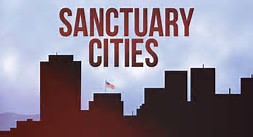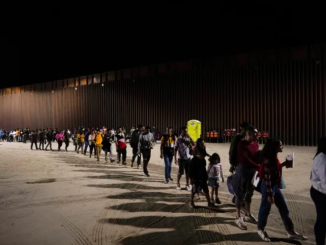
Rasmussen
The rape of a 14-year-old girl in a Maryland suburban high school by two older students who were in this country illegally has moved the sanctuary city debate back on the front burner.
{snip}
Elected officials in many communities have declared themselves sanctuaries for illegal immigrants, refusing to cooperate with federal immigration authorities, and 35% of Likely U.S. Voters favor the community they live in declaring itself a sanctuary community. The latest Rasmussen Reports national telephone and online survey finds that 52% oppose their community declaring itself a sanctuary for illegal immigrants. Fourteen percent (14%) are undecided.
{snip}
A plurality (48%) of Democrats favors living in a sanctuary community, but only 27% of both Republicans and voters not affiliated with either major political party agree.
Forty percent (40%) of all voters believe sanctuary communities are less safe than communities that do not protect illegal immigrants from federal authorities. Seventeen percent (17%) say sanctuary communities are more safe, while 35% think the level of safety is about the same.
{snip}
Fifty percent (50%) of voters said in November that the U.S. Justice Department should take legal action against cities that provide sanctuary for illegal immigrants.
{snip}
Fifty-two percent (52%) still want to cut off federal funding to sanctuary cities.
Most voters have favored punishing sanctuary cities in surveys since 2007.
{snip}
Just 28% believe the government is doing enough to stop the flow of illegal immigrants into this country.
Eighty-one percent (81%) continue to favor a plan that calls for mandatory deportation of illegal immigrants who have been convicted of a felony in this country. Sixty-five percent (65%) support a five-year mandatory prison sentence for illegal immigrants convicted of major felonies who return to America after being deported.
Voters are closely divided over whether the United States should build a wall on the U.S.-Mexico border, but most think it’s likely that Trump will dramatically cut the number of illegal immigrants entering the United States.
Fifty-eight percent (58%) believe Mexico should pay at least some of the costs associated with building the wall, perhaps in party because only 27% think the Mexican government wants to stop its citizens from illegally entering the United States.
Original Article


